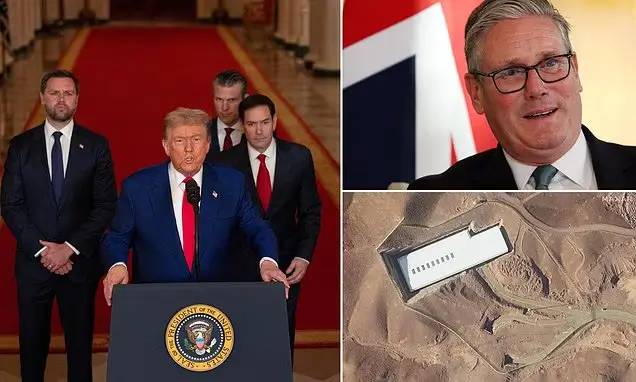
As global tensions escalate following U.S. airstrikes on Iranian nuclear sites, world leaders have issued sharply divergent responses—highlighting deep international divisions over the path to peace in the Middle East.
On Sunday, June 22, American warplanes targeted three of Iran’s key nuclear facilities—Natanz, Isfahan, and Fordow—on the orders of President Donald Trump. The strikes, described by Washington as a preemptive measure to neutralize a growing nuclear threat, mark a dramatic escalation in the region’s long-running power struggle.
British Prime Minister Keir Starmer strongly defended the U.S. action, describing Iran’s nuclear ambitions as “a grave threat to international security.” In a statement from Downing Street, Starmer emphasized that the airstrikes were intended to “avert a greater catastrophe” and urged Tehran to return to the negotiating table.
Foreign Secretary David Lammy echoed the Prime Minister’s stance, calling on Iran to “show restraint and pursue dialogue rather than retaliation.”
European Commission President Ursula von der Leyen also stressed the need for diplomacy over confrontation.
“Stability must be the priority, and respect for international law is critical. Now is the moment for Iran to engage in a credible diplomatic solution. The negotiating table is the only place to end this crisis,” she said.
Japanese Prime Minister Shigeru Ishiba added his voice to the call for de-escalation, while also underlining the urgency of halting Iran’s suspected nuclear weapons development.
“A de-escalation as soon as possible is more important than anything,” Ishiba said. “But at the same time, Iran’s nuclear weapons development must be stopped.”
In stark contrast, China and Russia issued strong condemnations of the U.S. strikes, accusing Washington of undermining international law and inflaming regional instability.
China’s foreign ministry denounced the operation as a “serious violation of the UN Charter and international norms,” warning that the attack would only deepen unrest in the Middle East.
“The United States has exacerbated tensions,” the ministry said, urging all parties—especially Israel—to agree to a ceasefire, protect civilians, and resume dialogue.
Russia’s foreign ministry echoed China’s criticism, describing the strikes as “an irresponsible decision” and “a flagrant violation of international law.” Moscow called for an immediate halt to military action and renewed efforts toward a peaceful resolution.
The airstrikes follow a series of tit-for-tat attacks between Iran and Israel in recent weeks. Tehran had previously warned that U.S. involvement would provoke serious and long-lasting consequences.
As the global community reacts, fault lines are emerging between those backing military deterrence and those urging diplomacy. With the risk of broader conflict looming, pressure is mounting on all sides to choose between confrontation and negotiation.

 Mzansi xxx
Mzansi xxx